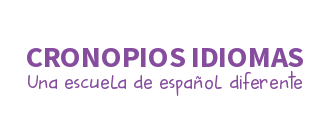False friends
You are probably familiar with the concept of false friends: words and expressions that are very similar to other words and expressions in a different language, but mean something completely different. In this new entry of our blog, we’ll take a look at some of the most common English – Spanish false friends, so you can be sure you don’t make any mistakes when you practice our language (although sometimes they may cause hilarious situations that can be excellent icebreakers!).
Actually – Actualmente
We’ll start with a classic: two very common words which are the adverb form of the same adjective (actual is spelled the same both in English and Spanish) but have a different meaning. In our language, actual means current, so actualmente means currently (e.g. Actualmente, muchos jóvenes usan Tik Tok). If you want to use actually in Spanish, the best translation would be en realidad: Mucha gente piensa que Sidney es la capital de Australia pero, en realidad, es Camberra.
To be embarrassed – Estar embarazada
If people look at you with a funny face when you declare “¡Estoy embarazado/a!” after you make a mistake, it’s because it doesn’t mean what you think it means. Embarazada is the Spanish word for pregnant (that’s why it’s almost always used in the feminine form), so now you know why those people are offering you a chair. The correct term in this case would be avergonzado/a. Both are used with the verb estar and not ser, because they refer to a state, not a personality trait.
Carpet – Carpeta
Both words refer to everyday objects, but they couldn’t be more different. A carpeta is not something you put on the floor to protect yourself from the cold, but a thing you can use to keep papers and documents: it’s a folder (which means we use this word a lot when we talk about computers). So Aladdin didn’t travel around in a carpeta mágica; instead, he would use an alfombra mágica.
Bigot – Bigote
It is a well-known fact that many bigots have a bigote, but don’t let it confuse you! A bigote is a moustache (it can also be used in the plural form for whiskers), or the milk above your upper lip after you drink. We could translate bigot as intolerante or fanático/a; in Spain, we use facha a lot, which refers to the same kind of person, but it’s usually associated with Franco supporters.
Bomber – Bombero
If you see the bomberos’ telephone number associated with police and ambulances, don’t worry, we don’t (usually) solve our problems by bombing stuff: that’s how we call the firemen in Spanish (by the way, this year we’ve been proud to welcome the first bombera ever in Madrid). The word bomba does mean bomb, but also pump, hence the confusion. The people who use bombs are called bombarderos/as.
Vase – Vaso
These two objects are actually pretty similar, but we use them for different purposes: a vaso is something you put water or other liquids in to drink, so it’s a glass in English. The thing where you put flowers to decorate a room is called a jarrón or a florero. Fun fact: in Spain, when somebody drinks a lot of alcohol at some event, we say “¡Se bebió hasta el agua de los floreros!” (They drank even the water in the vases).
Rope – Ropa
Although sometimes people use ropa to tie stuff or other people up, they are not the same thing. Ropa is the Spanish word for clothes (remember: it’s a non-countable noun! You can’t say “dos ropas”, you should say instead “dos prendas” -garments). If you need someone to throw you a rope, you should ask for a cuerda or a soga.
Exit – Éxito
We know how tempting it is for English speakers to just add -o to the end of a word to make it sound more Spanish, but if you are in the metro, or a museum, and you need to find the exit, look for a sign with the word salida on it (from the verb salir: to get out). Éxito means success, which sometimes is something difficult to find, too! And this leads us to our next example…
Success – Suceso
Well, you already know that success is éxito in Spanish, so what does suceso mean? It is the noun form of suceder, which means to happen (not to succeed! That would be tener éxito), so a suceso is an event, a happening. If you see this word as a section in the news, it is usually associated with crime and all kinds of misfortune.
And these are our English – Spanish false friends! We hope you find them useful, but remember: making mistakes is part of every learning process, and practice is absolutely necessary if you want to speak a new language. So don’t be afraid to engage in conversation whenever you can, and never feel embarrassed! ?


